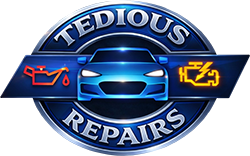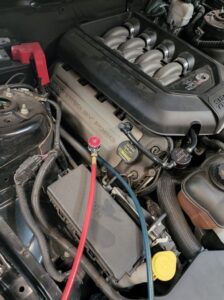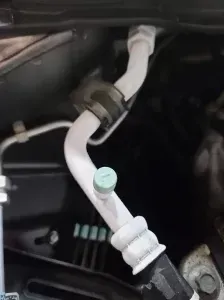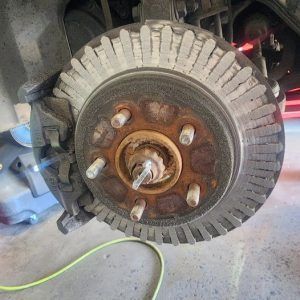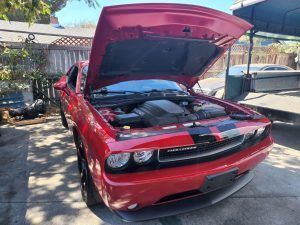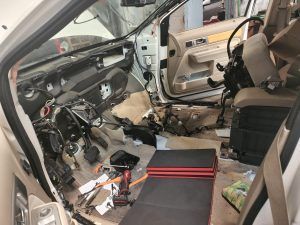Why Radiator Servicing Matters: Understanding The Importance Of Regular Checks
Regular radiator servicing is crucial for maintaining the efficiency and functionality of your heating system. Neglecting this important maintenance task can lead to a host of issues that can disrupt your comfort and potentially cost you a significant amount of money in repairs.
In this article, we will explore the benefits of regular radiator servicing, common issues that can arise from neglected maintenance, and how to perform basic radiator maintenance yourself. Additionally, we will discuss when it is necessary to schedule professional radiator servicing to ensure optimal performance.
By understanding the importance of regular checks and taking proactive steps to maintain your radiators, you can ensure that your heating system operates at its best, keeping you warm and comfortable throughout the year.
So, let’s delve into the world of radiator servicing and discover why it truly matters.
Key Takeaways
– Regular radiator servicing is crucial for maintaining efficiency and functionality of heating system.
– Neglecting maintenance can lead to issues and costly repairs.
– Benefits of regular radiator servicing include preventing issues and extending lifespan of heating system.
– Regular servicing improves overall efficiency and energy efficiency of heating system.
The Benefits of Regular Radiator Servicing
Regular radiator servicing ensures that your heating system stays efficient and reliable, giving you peace of mind and a cozy warm home during the cold winter months. The benefits of regular radiator maintenance are numerous. Firstly, it helps to prevent any potential issues from arising in the first place. By regularly inspecting and cleaning your radiators, you can identify and address any minor problems before they escalate into major issues. This not only saves you from costly repairs but also extends the lifespan of your heating system.
Furthermore, regular radiator servicing improves the overall efficiency of your heating system. Over time, radiators can accumulate dirt and debris, causing them to become less effective at distributing heat. By cleaning and flushing your radiators regularly, you can ensure that they are working at their optimal capacity, resulting in a more comfortable and energy-efficient home.
For those who prefer to take a hands-on approach to radiator maintenance, there are some useful tips to keep in mind. Firstly, bleeding your radiators at least once a year helps to remove any trapped air, allowing the hot water to circulate efficiently. Additionally, regularly checking the pressure and temperature of your heating system can help to identify any potential issues before they become major problems.
Regular radiator servicing offers numerous benefits, including preventing potential issues, improving efficiency, and extending the lifespan of your heating system. By following some simple DIY maintenance tips, you can ensure that your radiators are in optimal condition.
Now, let’s explore the common issues that can arise from neglected radiator maintenance.
Common Issues that Can Arise from Neglected Radiator Maintenance
If you neglect radiator maintenance, you may experience three common issues. First, the accumulation of sludge and debris can occur, which can hinder the proper flow of heat through the radiator.
Second, airlocks and cold spots may develop, causing uneven heating throughout your space.
Lastly, leaks and corrosion can arise, leading to potential damage to your radiator system.
It’s important to address these issues promptly to ensure the efficient and effective operation of your radiator.
Accumulation of Sludge and Debris
One major issue with radiators is the build-up of sludge and debris, which can cause serious damage if not addressed regularly. Over time, particles in the water supply can settle in the radiator, leading to the formation of sludge. This sludge can restrict the flow of water through the system, preventing proper heat transfer and causing cold spots in some areas while preventing overheating in others.
Additionally, the accumulation of debris can hinder the radiator’s ability to efficiently transfer heat, resulting in decreased energy efficiency. Regular radiator servicing is crucial to prevent the build-up of sludge and debris, as it involves flushing the system and removing any accumulated particles.
By addressing this issue, you can ensure that your radiator functions optimally and avoid potential problems such as airlocks and cold spots that we’ll discuss next.
Airlocks and Cold Spots
Airlocks and cold spots can be quite bothersome, but regular radiator maintenance can help prevent these issues. Airlocks occur when pockets of air get trapped in the radiator, preventing the hot water from circulating properly. This can lead to cold spots in the radiator and uneven heating in the room. To prevent airlocks, it is important to bleed your radiators regularly. This involves releasing the trapped air by using a radiator key or a bleed valve. Troubleshooting cold spots requires checking the radiator for any blockages or obstructions. If cold spots persist even after bleeding the radiator, it may be necessary to power flush the system to remove any accumulated sludge or debris. By addressing airlocks and cold spots, you can ensure that your radiator operates efficiently and provides consistent heat throughout your home.
Moving on to the next section about leaks and corrosion…
Leaks and Corrosion
To prevent leaks and corrosion, it’s crucial to regularly inspect and maintain your radiator system. Leaks can occur due to old or damaged seals, while corrosion is often caused by the presence of rust.
Rust prevention is key to ensuring the longevity of your radiator system. One of the most effective ways to prevent rust is to use a rust inhibitor or coolant additive. These products create a protective barrier inside the radiator, preventing the formation of rust and corrosion.
Additionally, regular radiator maintenance can help identify any potential leaks or signs of corrosion early on. This includes checking for any visible signs of leaks, such as puddles under the radiator or damp spots on the floor.
By performing these checks and following basic radiator maintenance tips, you can ensure the optimal performance and longevity of your radiator system.
Now, let’s move on to how to perform basic radiator maintenance.
How to Perform Basic Radiator Maintenance
To perform basic radiator maintenance, start by bleeding the radiators to remove any trapped air. This can be done by opening the radiator valve with a key or screwdriver until water starts to flow out.
Next, check for leaks and corrosion by inspecting the radiator for any signs of water or rust. If any leaks or corrosion are found, they should be repaired or replaced.
Finally, clean the radiator surfaces by using a soft brush or cloth to remove any dust or debris that may have accumulated. This will ensure proper heat transfer and prevent overheating.
Bleeding Radiators
Regularly bleeding radiators is crucial for maintaining proper heating system performance and preventing potential damage caused by trapped air. Bleeding techniques, such as using a radiator key or bleed valve, help release the trapped air and allow hot water to flow freely, ensuring efficient heat distribution. Balancing the radiators by bleeding them helps maintain consistent temperatures across all rooms, preventing cold spots and reducing energy consumption.
To bleed a radiator, follow these steps:
1. Turn off the heating system and allow the radiators to cool down.
2. Locate the bleed valve, usually located at the top of the radiator.
3. Place a towel or container underneath the valve to catch any water.
4. Insert the radiator key or a screwdriver into the valve and slowly turn it counterclockwise.
Regularly bleeding radiators not only improves heating performance but also extends the lifespan of your system. After bleeding your radiators, it’s important to check for leaks and corrosion to ensure the overall health of your heating system.
Checking for Leaks and Corrosion
Checking for leaks and corrosion is crucial for ensuring the overall health and longevity of your heating system. By regularly inspecting your radiator, you can prevent rust and identify potential issues before they become major problems.
Start by examining the radiator for any signs of leaks, such as water stains or puddles around the unit. Inspect the joints and connections, as they’re common areas for leaks to occur. Additionally, check for any corrosion on the radiator’s surface, as this can weaken the structure and lead to leaks.
If you notice any leaks or signs of corrosion, it’s important to address them promptly to prevent further damage.
Transitioning into the next section about cleaning radiator surfaces, maintaining a clean and well-maintained radiator is essential for optimal performance.
Cleaning Radiator Surfaces
Now that you have learned about checking for leaks and corrosion in your radiator, let’s move on to the next step: cleaning radiator surfaces. This is an essential part of radiator maintenance as it helps ensure optimal performance and longevity of your radiator. Over time, dust, dirt, and debris can accumulate on the radiator surfaces, obstructing airflow and reducing cooling efficiency. To clean the radiator surfaces, you can use various techniques such as using a soft brush or compressed air to remove loose dirt and debris, and then gently wiping the surfaces with a damp cloth. Remember to be careful not to damage any delicate parts. Regular cleaning of radiator surfaces is crucial for maintaining the efficiency of your radiator and preventing overheating issues.
To provide a visual representation of the ideas, here is a table showcasing the importance of radiator cleaning techniques:
| Radiator Cleaning Techniques | Benefits |
| ————————— | ——– |
| Removing loose dirt and debris | Improves airflow |
| Gently wiping surfaces with a damp cloth | Prevents overheating |
| Using a soft brush or compressed air | Maintains radiator efficiency |
Now that you understand the importance of cleaning radiator surfaces, it’s time to learn about when to schedule professional radiator servicing.
When to Schedule Professional Radiator Servicing
To ensure the optimal performance of your radiator, it’s crucial to schedule professional servicing on an annual basis.
This regular maintenance check will help identify any potential issues before they become major problems.
Additionally, be on the lookout for signs that your radiators need professional attention, such as cold spots, leaking water, or unusual noises. These may indicate underlying issues that require immediate servicing.
Annual Maintenance Checks
Make sure you schedule your annual maintenance checks for your radiator to ensure its optimal performance and avoid any unexpected breakdowns. Regular annual maintenance checks offer a range of benefits for your radiator.
Here are three important reasons why you should prioritize these checks:
– Preventive Measures: Annual maintenance helps identify and resolve potential issues before they turn into major problems. This proactive approach saves you from costly repairs and inconvenient breakdowns.
– Improved Efficiency: Regular servicing ensures that your radiator operates at peak efficiency. It involves cleaning and inspecting key components, such as the fins, valves, and pipes, to keep them in optimal condition. This results in better heat distribution and lower energy consumption.
– Prolonged Lifespan: Annual maintenance extends the lifespan of your radiator. By addressing any wear and tear, lubricating moving parts, and fixing minor leaks, you can prevent premature failure and enjoy reliable heating for years to come.
By scheduling these annual checks, you can stay ahead of any potential issues and ensure your radiator continues to function effectively.
Now, let’s explore the signs that indicate your radiators need professional attention.
Signs that Your Radiators Need Professional Attention
If you notice uneven heating or strange noises coming from your radiators, it’s time to bring in the professionals for a closer look. These warning signs could indicate underlying issues that require immediate attention.
However, before calling in the experts, there are a few DIY troubleshooting tips you can try. Firstly, check for any air trapped in the system by bleeding the radiators. If this doesn’t solve the problem, check the valves and thermostatic radiator heads for any blockages or malfunctions.
It’s important to remember that attempting to fix complex issues without proper knowledge and expertise can lead to further damage. Therefore, contacting professional radiator servicing is crucial to ensure a thorough inspection and repair.
Regular checks for overall heating system performance are crucial in maintaining a comfortable and efficient home. By addressing minor issues promptly, you can prevent major breakdowns and maximize the lifespan of your heating system.
The Importance of Regular Checks for Overall Heating System Performance
Regular checks for your heating system are vital in ensuring optimal performance for your radiators. By conducting regular checks, you can effectively monitor and maintain your heating system’s efficiency, which directly affects the performance of your radiators.
Heating system efficiency refers to how well your system converts fuel or electricity into heat for your home. When your heating system is not functioning at its best, it can lead to increased energy consumption, resulting in higher utility bills. Regular checks allow you to identify any issues or inefficiencies in your heating system early on, preventing further damage and unnecessary energy consumption.
During these regular checks, it is important to inspect all components of your heating system, including the boiler, pipes, and radiators. Look for any signs of leaks, corrosion, or blockages, as these can significantly impact the performance of your radiators. Additionally, check the pressure and temperature settings of your heating system to ensure they are within the recommended range.
If any issues are detected, it is crucial to seek professional attention promptly to prevent further damage and ensure optimal performance.
Regular checks for your heating system are essential to maintain heating system efficiency and reduce energy consumption. By monitoring and maintaining your heating system, you can ensure that your radiators function effectively, providing you with the warmth and comfort you need while minimizing energy wastage and saving on your utility bills.
Frequently Asked Questions
How often should radiator servicing be performed?
You should perform radiator servicing regularly to ensure optimal performance. The frequency of servicing depends on factors such as usage and environment. Regular servicing has numerous benefits, including improved efficiency and prevention of costly breakdowns.
Can I perform basic radiator maintenance myself, or should I always hire a professional?
You should always hire a professional for radiator servicing. While DIY radiator maintenance may seem cost-effective, professionals offer expertise, ensuring thorough inspections, proper repairs, and identifying potential issues before they become major problems.
What are the signs that indicate my radiator is in need of servicing?
To troubleshoot radiator issues and identify common radiator problems, look out for signs like overheating, coolant leaks, strange noises, and a fluctuating temperature gauge. These indicators indicate that your radiator needs servicing.
Are there any potential dangers associated with neglected radiator maintenance?
Neglected radiator maintenance poses potential risks and consequences. Failure to service your radiator can lead to overheating, coolant leaks, engine damage, and even complete breakdown. Regular checks are crucial to prevent these issues.
Does regular radiator servicing have any impact on energy efficiency and cost savings?
Regular radiator servicing improves energy efficiency and leads to significant cost savings. By ensuring that your radiator is operating at its optimal level, you can reduce energy consumption and lower your heating bills.
Conclusion
In conclusion, regular radiator servicing is essential to ensure optimal performance and longevity of your heating system. By conducting basic maintenance tasks such as bleeding the radiator and checking for leaks, you can prevent common issues such as uneven heating and reduced efficiency.
However, it’s equally important to schedule professional radiator servicing at least once a year to address any underlying problems and ensure the system operates smoothly. Don’t overlook the significance of regular checks, as they play a crucial role in maintaining a comfortable and efficient heating environment.

